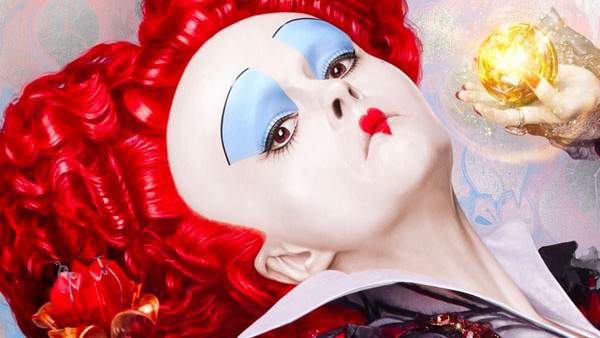How Exactly Does Alice Through The Looking Glass Have An A- Cinemascore?
How can scores be so wildly out?

Whether you want to blame it on Johnny Depp's incredibly poor publicity timing, or the poor word of mouth coming out of reviews, there's no getting past the fact that Alice Through The Looking Glass looks like a bust.
The film was crushed this weekend at the box office by X-Men: Apocalypse (itself the subject of some incredibly harsh reviews), and Disney's distribution chief Dave Hollis has acknowledged that there have been issues:
"It's disappointing. The domestic opening is wildly less than what every tracking service had us at. We're in the tentpole business. More often than not, they turn out to be huge successes. We'll continue to take those big bets. In this instance, it didn't turn out as we hoped."
Maybe don't gamble so many chips that were ill-gotten on a bet that accidentally came off in the first place next time.
The positive for Disney and Hollis is that the film scored an A- Cinemascore, suggesting audiences at least were delighted with it. But how can the RottenTomatoes score of 30% from critics and 61% from fans and the IMDB score of 6.5 turn into an A-? It's illogical.
Perhaps it's because first night viewers are the most likely to have loved the first film (making them a fundamentally biased focus group)? Perhaps there were just lots of Johnny Depp fans who hadn't yet heard about his transgressions? Maybe there was some sort of mass hysteria?
If a film is rated at A-, you'd think that would mean that the same people who awarded that score - i.e. the first wave of viewers - would then generate good word of mouth for the film. But that clearly hasn't happened here, and you cannot put it all down to the critics not getting on board.
Hollywood continues to use Cinemascore as the benchmark of quality, but it's impossible to take it seriously when it's so wildly out of synch with both public and critical consensus. When that sort of rating is used as a foundation for planning what movies should be invested in, when critical reception is ignored (in terms of mega selling franchise starters), it's even more dangerous, as it risks studios like Disney ploughing money in and imagining the critics just have a grudge and the audience are being kept away from
But that fundamentally under-estimates the commitment of audiences to see movies despite the apparent Rules (like not seeing movies in the first three months of the year or listening to critical ratings). They'll see what they want to see, and word of mouth - particularly for tent-poles - will destroy poor word of mouth.
So maybe Disney ought not to put too much into that Cinemascore and look at the more empirical evidence elsewhere of the film's true reception.